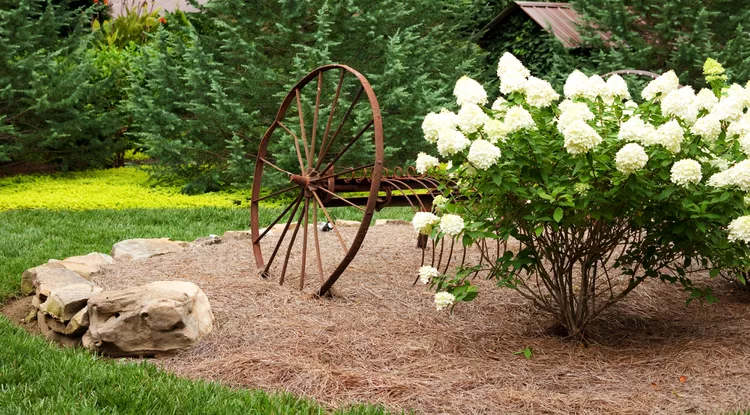Does Pine Needle Mulch Really Make Your Soil More Acidic?

Gardeners have been putting pine needle mulch, also known as pine straw, on acid-loving plants like azaleas, camellias, and blueberries forever in the belief that pine needles lower the soil pH as they decompose. Other gardeners believe that pine needle mulch will make soil inhospitable to some plants by making the soil too acidic. They avoid pine needle mulch because they think it’s harmful to their garden.
But is there actually any truth to these notions or is it just a garden myth that pine needles make soil more acidic? We asked an expert to settle the question.
Jack LeCroy is the regional extension agent for the Alabama Cooperative Extension System, specializing in home grounds, gardens, and home pests.
The Myth About Pine Needles
So, does pine needle mulch make soil more acidic? “It’s a myth that pine straw acidifies your soil,” says Jack LeCroy, regional extension agent for the Alabama Cooperative Extension System. The myth that pine needles lower soil pH likely arose from the fact that pine needles are acidic when they come off the tree.
“They can be anywhere from 3 to 4 on the pH scale when they fall,” LaCroy says. For comparison, orange juice and acid rain also have a pH of 3 to 4. So, those pine needles are indeed acidic when they are fresh, but they don’t stay that way.
“By the time they decompose into the soil, pine needles are basically neutral,” LeCroy says. Soil microbes, insects, and humidity neutralize the acidity of the pine needles as they break them down, he says.
Another factor contributing to the garden myth that pine needles lower soil pH is that the soil around pine trees tends to be acidic. Many people believe the trees’ falling needles create that acidic soil, but the truth is pine trees are there because they thrive in acidic soil. Pines grow where the soil is acidic; they don’t make the soil acidic by growing there.
Why to Use Pine Needles for Mulch
As the pine straw breaks down, it adds beneficial organic matter to the soil that provides nutrients to plants. “Pine needles make excellent mulch. Once it settles into place and starts to decompose," says LaCroy, "it creates a mat that holds moisture in the soil, suppresses weeds, and keeps the soil cool." Pine needles break down slowly, so a layer of pine needles several inches thick will last a long time.
If you live someplace with lots of pine trees, pine straw is a cheap option for mulch—or even free, if you rake it yourself.
LeCroy prefers pine needle mulch to pine nugget mulch because the pine needles won’t wash away in heavy rain like nuggets do, and pine needle mulch works well on slopes.
The Best Way to Make Soil More Acidic
LeCroy says sulfur is the best way to acidify your soil. You can buy sulfur powder in bags at garden supply centers for use as a soil amendment. For established plants, top-dress the soil. For new plants, add sulfur at the time of planting. Sulfur will change the soil pH instantly as soon as it dissolves into the soil.
Test the Soil Before Adding Amendments
Before you amend your soil, test the pH, LeCroy says. Don’t assume the pH is off and amend the soil blindly. “It’s like going to a doctor’s office where they do a blood test before they prescribe any treatments for you. They’re not going to look at you and say you need vitamins A and D. They are going to run some tests first,” LeCroy says.
You can test your soil yourself with an at-home kit or take a sample to your local extension office. After you receive the test results, you can fine-tune your soil pH correctly with the right amount of sulfur or other amendment.